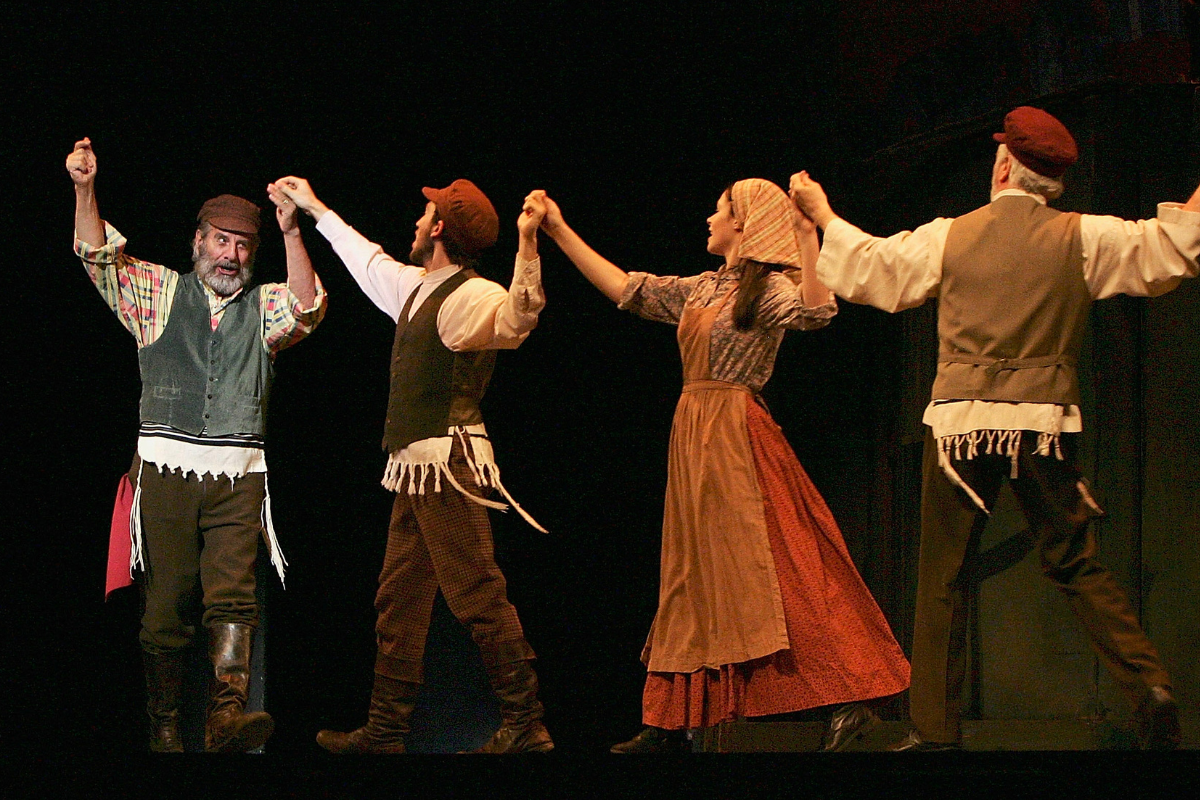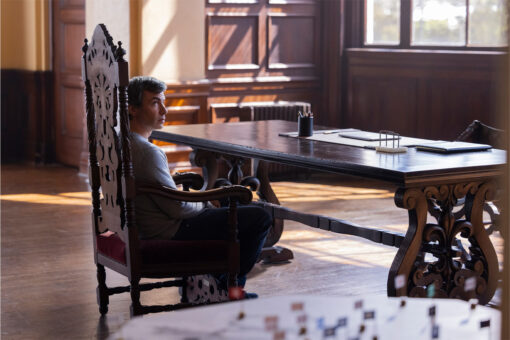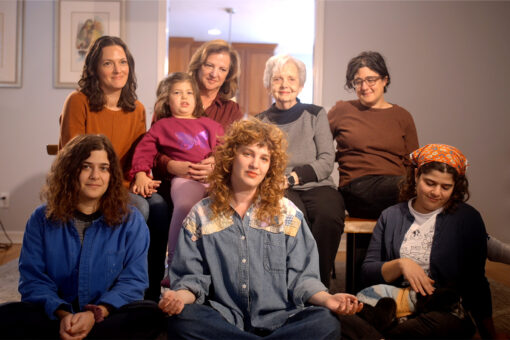A couple of months ago, I had the absolute pleasure of seeing “Fiddler On The Roof” at the Regent’s Park Open Air Theatre. Anatevka came to life on that August evening in London. The Open Air Theatre is always a treat — whatever elements British summertime throws at you become part of the world of the show — and this production was one of the most joyful experiences of the stage I have had in a long time. From the opening number, I was utterly bewitched and enthralled.
I saw a production of “Fiddler” a few years back, in a small, dark theater that felt like it was hosting a decent chunk of Jewish London, where my family and I bumped into eight people we knew and were surprised not to see more. I enjoyed it, but the lasting impression was one of bleakness. This is hardly inappropriate: tales of persecution, of family ties which are stretched to their limits, of struggling to define one’s identity when those around you would rather it did not exist at all are unlikely to be the most uplifting. But, as I feel is a consistent through-line in so many of these stories of Jewish hardship, Fiddler is also filled with celebration and music and jubilance. The Regent’s Park production held fast to all of these shiny, special moments. The sheer energetic force of the cast was honestly quite breathtaking. And the humanity of the characters was at the absolute forefront.
It was this humanity which was, in my view, this production’s greatest strength. The narrow, orthodox world of Anatevka can seem very foreign and almost unreal, particularly coming from a very liberal, metropolitan Jewish upbringing. The values can seem backwards, and the problems can seem outmoded. Tevye’s dedication to tradition can seem incomprehensible and one-dimensional, especially if the play and its inhabitants are caricatured into abstraction. But this production’s turmoil was so deeply personal, so rooted in reality. Tevye tries. He loves his daughters. He wants them to be happy. But he has his limits. He is unable to reconcile his third daughter’s desire to marry a non-Jewish man with his own convictions. “If I bend that far,” he tells us, “I will break.”
In the world of the play, tradition is vital. It keeps the wheels turning, and it gives everyone the security nestled within knowing their place. Groups on the margins of society are often under so much external threat that a need to balance upon a very precarious tightrope seeps into their own practices. Tradition is the glue, and the guidelines. When danger closes in, it can allow people to keep a sense of security. Tradition is crucial to survival.
This is a story that has been told a lot of times. It is one to which so many Jewish people are intimately connected, understanding that their own existence and community — today, as it is — has been born out of the destruction and survival of so many others. Our very being is, in so many cases, a testament to ancestral luck. “Fiddler” finishes in circa 1907 as its protagonists and those around them are dispersed across the world. It is hard not to flinch as some speak, full of hope for something safer, of moving to what the audience knows will, before long, be a Nazi-invaded Warsaw. The Jewish exodus comes and comes again, and we are fractured across time and space and language.
I have been lucky enough to live a life where tradition is a choice, not a necessity. I have been given as much room as possible to make choices about what Judaism will look like to me. A bat mitzvah was something I opted in to, on the condition of going to classes and with the knowledge that I could just as easily opt out, at the age of 7. I would be lying if I said that having actively chosen that path meant I never resented Hebrew school or yawned in synagogue, but it did mean that my identity felt like something I had a say in. It has always been made clear to me that there are so many ways to be Jewish, and that my Jewishness doesn’t go away if I don’t want to buy in wholeheartedly. It has never been all or nothing. My identity being my identity has been central; I have been encouraged to take what resonates and leave what doesn’t, and to be ready for those things to change as I do.
I have never kept kosher, but could never stomach pork on High Holidays — not out of any circumstantial piety, but in response to my grandmother’s anti-bacon-burger chorus to me and my sisters on post-synagogue September lunches: “Oh girls, not on Rosh Hashanah.” I couldn’t possibly encounter mention of Haman without booing. Billy Joel Passover is an absolute staple of the seder night. These are all little nods to where I have come from, and where I am going. Instead of hemming me in to a predetermined life, tradition feels like a thread connecting me to those who have come before. Instead of being rigid and unforgiving, tradition is kind, and welcoming, and ready to fit into the space I allocate.
Tradition underscored by fear, like we see in “Fiddler,” can make us hold on to what we love so tightly that we cause it to shatter. I feel deliriously lucky to have found a special, fleeting balance in which the precious past and the juicy potential of the present can co-exist, neither one forcing the other to shrink.
It was inevitable that as we — my parents, my boyfriend and I — left the beautiful outdoor theater where “Fiddler” came alive that August evening, my dad would joke about his affinity with Tevye. Though united by a love for their wife and daughters, and an enjoyment of the hora, my non-Jewish father who adores my non-Jewish boyfriend couldn’t be much further from the version of Tevye who imposes restrictions on the lives and loves of his daughters.
This is my tradition, and this is my Jewish identity: a wonderful pick and mix experience underpinned by the idea that the picking and mixing is what makes it special and unique and meaningful and mine. Diasporically, personally, vividly, tradition allows us to hold onto pieces of what once was home.



